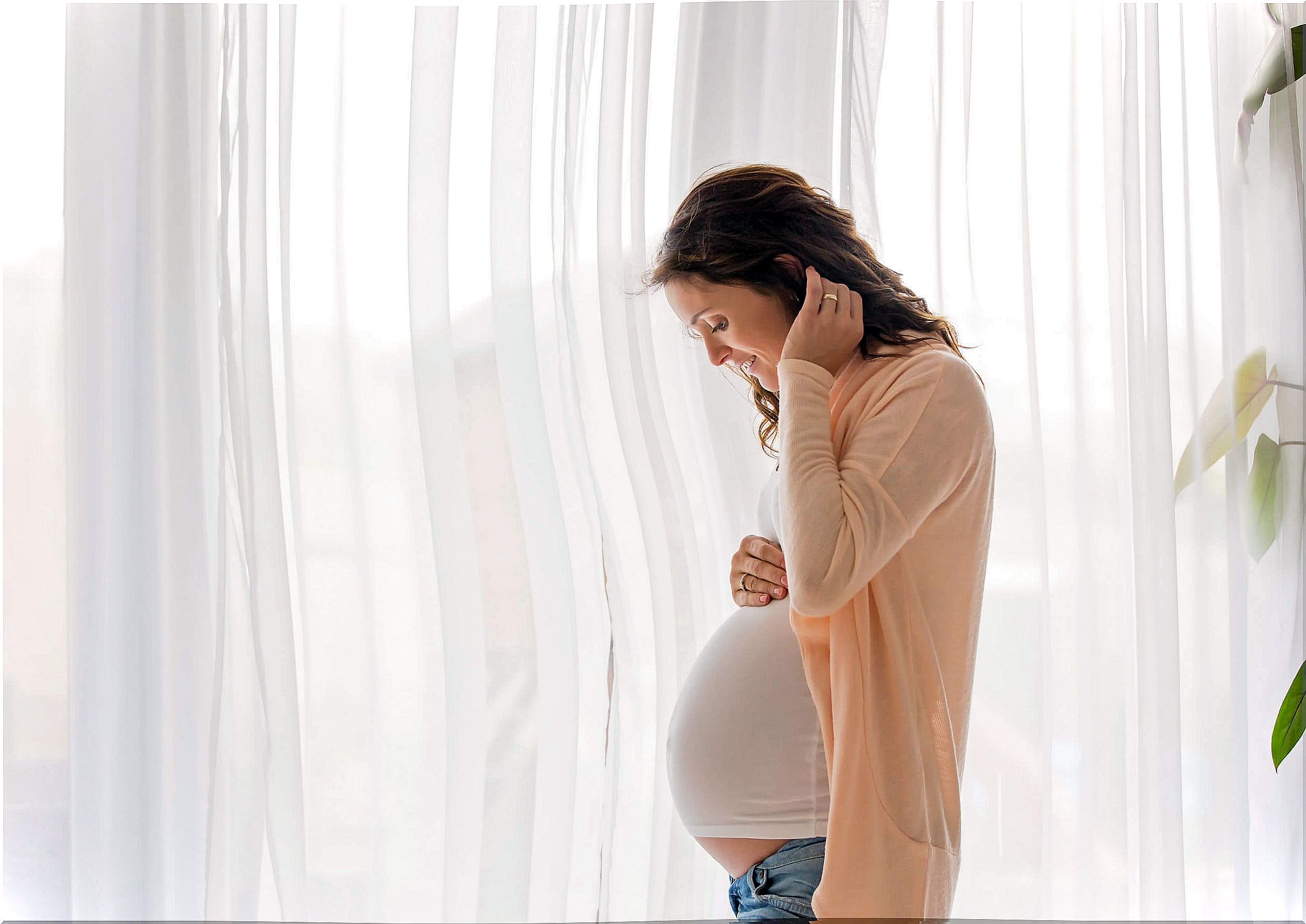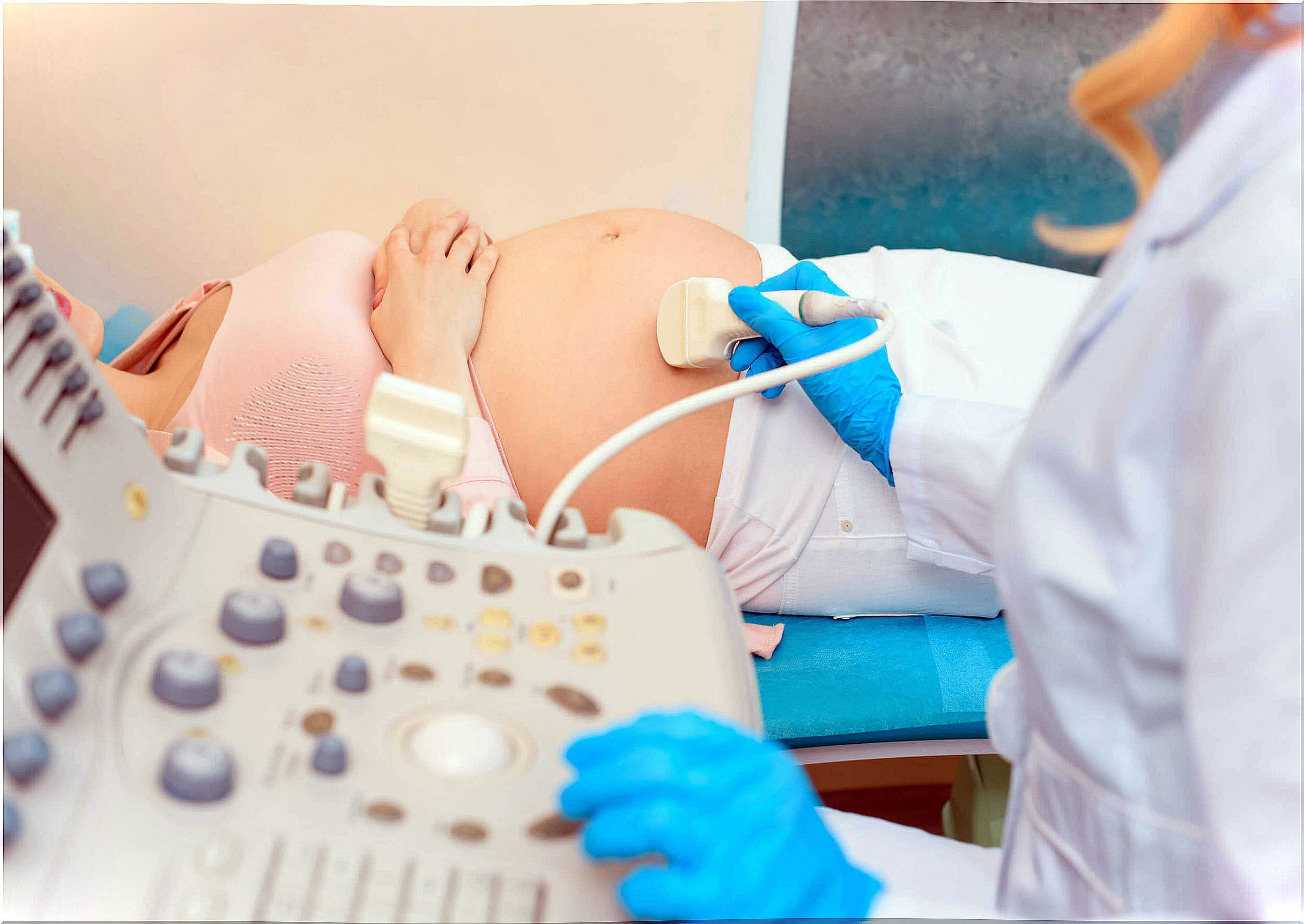Week 36 Of Pregnancy

We reached week 36! Anxiety increases, preparations are becoming more hasty, the family is very excited, and you just want to see your baby in your arms. And it is that during these days the little one is practically ready to go abroad.
You should be attentive to some symptoms that, if they occur, require urgent medical evaluation. We don’t want problems in the future! If you want to find out about this and other aspects, we have prepared the following lines for you. Keep reading!
How is my baby at week 36?

Welcome to the last weeks of pregnancy! While a birth at this time is considered premature, it is only a week away from full term. By now it should measure about 17 inches and weigh about 2,800 grams. It’s amazing how it has grown! It’s about the size of a romaine lettuce!
It should already be in a cephalic position, that is, with its head directed towards your pelvis. Some babies may not be well positioned yet, so obstetricians recommend maneuvers to change their location if this is the case. That is why it is so important to see a doctor before delivery!
Your organs are almost ready for the outside world. This includes the respiratory system, whose surfactant levels within the alveoli should be optimal. The circulatory and immune systems are ready to face the world. The nervous system should also be ready and it is even possible that the baby reacts when recognizing your voice.
The bones of the skull are already well formed and ready to overlap during passage through the birth canal. Don’t be surprised if a small deformity is seen on the skull right after birth! This usually goes away within a few hours. Also, the baby’s skin becomes soft and lush, and his gums become hard.
Your baby is forming meconium, when ingesting, along with other secretions, the lanugo and vernix caseosa that continue to shed from his body. These substances are processed by your body to transform into the first stool outside the uterus.
How can I feel during week 36?
You are likely to experience the same symptoms that you have been in this last trimester of pregnancy. These include low back pain, anxiety, and insomnia. It is also normal for mild uterine contractions to become more and more frequent.
Since your baby is only a few days away, you should be much more attentive to the symptoms of a urinary infection. Pain and burning when urinating, sometimes accompanied by a fever, can speed up labor.
If this happens, you should see a doctor immediately. The effects can have some negative consequences on your baby.
Tips and recommendations in week 36 of pregnancy
Your baby can descend into the pelvis at week 36 of pregnancy. Do not worry. This is normal in first-time women and is known as drooping or thinning .
- Don’t be alarmed if instead of kicking or tapping, you now experience jerky twists. This must be so. Your baby no longer has a lot of room to move, so growth slows down.
- Find out about your pre-delivery symptoms. It is time to review everything you learned in childbirth classes to keep it fresh in your memory. You are only days away from delivery.
- Have your hospital bag ready. Do not forget to pack essential items, several changes of intimate clothing, reception garments for the newborn and what your doctor has indicated as essential.
Go to the doctor in this period

The obstetrician has probably scheduled a prenatal appointment for this week, if it did not happen in week 35. If you have had routine exams, you should bring them to the consultation.
You have probably just completed the latest pregnancy tests:
- Complete blood count.
- Blood chemistry.
- Uroanalysis.
- Serologies for HIV and VDRL.
- Blood coagulation studies.
- Obstetric echoesonogram.
If you have ever had surgery, you may find that the exams are very similar to preoperative studies. This is so because, in the event of an emergency that requires a cesarean section, the surgeon will have on hand everything necessary to prevent complications and know what to expect. Prenatal visits always last until the baby is born and should never be interrupted.
Frequently asked questions about week 36 of pregnancy
We know that nervousness is increasing. Therefore, below we will answer some of the most frequent questions during week 36 of pregnancy.
1. What is a mucous plug?
It is an abundant discharge with a greenish, whitish or yellowish color that is sometimes accompanied by blood. This gelatinous material is found along the cervix and its expulsion is related to the arrival of labor.
This does not mean that you are about to have your baby! It will still take several hours or days for the cervix to dilate, especially if you are a new mother. However, when the mucous plug is expelled you should go to the hospital.

2. What is premature rupture of membranes?
When the layers that make up the amniotic sac break prematurely and the fluid inside it is released, it is called a premature rupture of the membranes . If it happens in week 36, you should go to the doctor as soon as possible, since you may require some medications, monitoring and hospitalization to prevent the baby from being affected.
3. Will I require a cesarean section?
This depends on your particular condition, but most cases do not require a C-section. This surgical procedure tends to cause more complications than a natural childbirth, so it should not be considered as the first option, unless there is a medical indication.
If you had a previous C-section, have an active infection, or your baby has a disease or genetic defect, your doctor may have planned surgery for you. These are indications according to the protocols.
4. What if my baby is born this week?
In the previous sections we told you that your child is already well developed, at least under normal conditions. If your baby, for any eventuality, is born this week, it would still be considered a premature delivery. However, the chances of complications occurring are small.
However, the most obvious consequence is that it can be born with low weight and height. Sometimes it will require hospitalization in a neonatal intensive care unit for a few days. For this reason, it is also convenient to leave a bag for the hospital with everything ready.
Take advantage of these moments
The countdown already goes for a few hours in many cases. Make the best of your time!
Spend some excellent days with your partner, family and friends. Do not hesitate to externalize all these beautiful feelings that we know you are experiencing. Meanwhile, prepare your bag and the last formalities for the baby’s birth.










